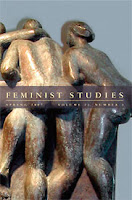A new blogger friend of mine, J.K. Gayle, recently posted this awesome quiz. He’s also got a great meme going around on “favorite teachers,” reminding us of the value of giving personal and public credit to one’s best teachers. (I’m going to post mine soon!)
For those of you unfamiliar with J.K.’s blog, Speakeristic, I urge you to check it out. J.K. is a Ph.D. candidate in the English Department at Texas Christian University, working on “translating Aristotle’s Rhetoric, rhetorically, feministically.” As he writes, “The whole project works against the nature Aristotle appears to suppose: ‘rhetoric is subservient to logic; women are subservient to men; translation is subservient to the original authored text.'”
Amen.






